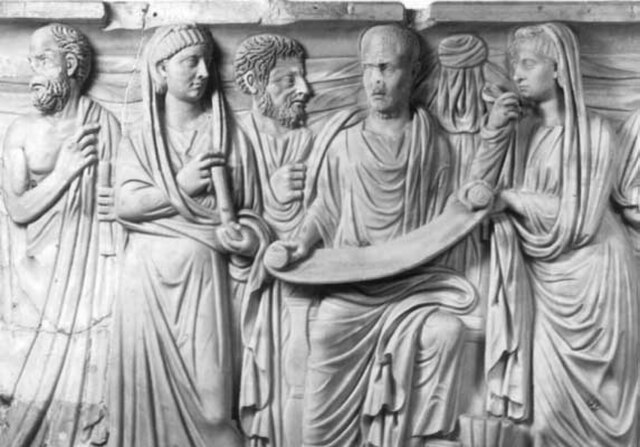Neoplatonism is a version of Platonic philosophy that emerged in the 3rd century AD against the background of Hellenistic philosophy and religion. The term does not encapsulate a set of ideas as much as a series of thinkers. Among the common ideas it maintains is monism, the doctrine that all of reality can be derived from a single principle, "the One".
Presumed depiction of Plotinus and his disciples on a Roman sarcophagus in the Museo Gregoriano Profano, Vatican Museums, Rome
Platonism is the philosophy of Plato and philosophical systems closely derived from it, though contemporary Platonists do not necessarily accept all doctrines of Plato. Platonism has had a profound effect on Western thought. At the most fundamental level, Platonism affirms the existence of abstract objects, which are asserted to exist in a third realm distinct from both the sensible external world and from the internal world of consciousness, and is the opposite of nominalism. This can apply to properties, types, propositions, meanings, numbers, sets, truth values, and so on. Philosophers who affirm the existence of abstract objects are sometimes called Platonists; those who deny their existence are sometimes called nominalists. The terms "Platonism" and "nominalism" also have established senses in the history of philosophy. They denote positions that have little to do with the modern notion of an abstract object.

Head of Plato, Roman copy. The original was exhibited at the Academy after the death of the philosopher (348/347 BC).
Plato holding his Timaeus, detail from the Vatican fresco The School of Athens
Site of Plato's Academy in Athens
Many Western churchmen, including Augustine of Hippo, have been influenced by Platonism.





